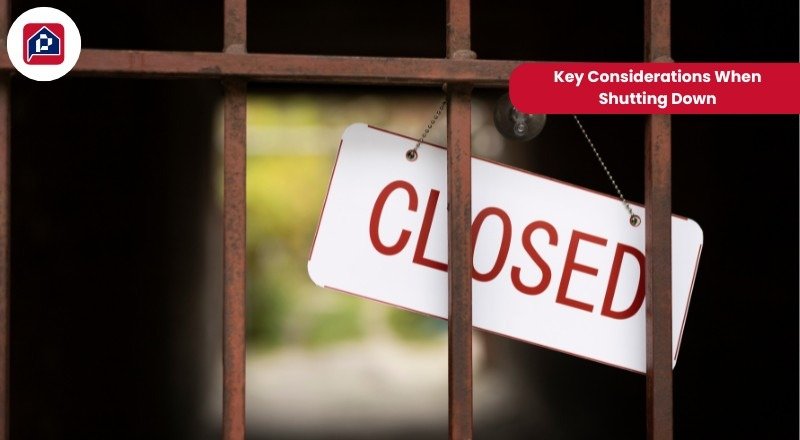What You Need to Know About Closing Down SPV

Closing down a Special Purpose Vehicle (SPV) requires careful planning and adherence to legal and financial protocols. Whether the SPV has fulfilled its purpose or is no longer viable, understanding the key considerations involved in winding down an SPV is essential. Let’s explores the important steps and factors to keep in mind when closing down an SPV.
Assessing the Reasons for Closure
Before initiating the closure process, it is crucial to clearly understand the reasons for shutting down the SPV. Common reasons include the completion of the project for which the SPV was created, changes in market conditions, financial difficulties, or strategic shifts in the parent company. A thorough assessment ensures that the decision to close the SPV is well-founded and aligns with overall business objectives.
Legal and Regulatory Compliance
Closing an SPV involves complying with various legal and regulatory requirements. The first step is to review the SPV’s Articles of Association and any shareholder agreements to identify the procedures and approvals needed for closure. In the UK, for example, the process involves notifying Companies House and possibly dissolving the company through a formal liquidation process.
Ensuring that all regulatory filings are up-to-date is essential. This includes submitting final accounts, tax returns, and any other required documentation to relevant authorities. Failure to comply with these requirements can result in legal penalties and complications.
Settling Financial Obligations
One of the most important aspects of closing an SPV is settling all the financial obligations. This includes paying off any outstanding debts, liabilities, and obligations to creditors. A thorough review of the SPV’s financial records is necessary to ensure all debts are identified and addressed. Additionally, it is important to collect any receivables and dispose of remaining assets in an orderly manner.
Distributing any remaining assets to shareholders or the parent company must be done in accordance with the SPV’s governing documents and applicable laws. Proper documentation of all financial transactions during the closure process is vital to maintain transparency and legal compliance.
Communication with Stakeholders
Effective communication with all stakeholders is crucial during the SPV closure process. This includes informing shareholders, creditors, employees, and other relevant parties about the decision to close the SPV and the steps involved. Providing clear and timely information helps manage expectations and reduces the risk of disputes or misunderstandings.
Stakeholders should be informed about the timeline for the closure, the process for settling financial obligations, and any actions they need to take. Maintaining open lines of communication throughout the process helps ensure a smooth and orderly wind-down.
Tax Implications
Closing an SPV has various tax implications that must be carefully managed. This includes finalising any outstanding tax liabilities and ensuring compliance with all tax regulations. Consulting with tax professionals can provide valuable insights into the tax obligations associated with closing the SPV and help optimise the tax position.
In some cases, tax clearances may be required from tax authorities to confirm that all tax liabilities have been settled. Ensuring that all tax obligations are addressed helps avoid future tax disputes and ensures a clean closure.
Documentation and Record Keeping
Maintaining comprehensive documentation and records throughout the SPV closure process is essential. This includes keeping records of all financial transactions, communications with stakeholders, and compliance with legal and regulatory requirements. Proper record-keeping ensures transparency and can be crucial if any legal or financial issues arise after the closure.
Conclusion
Closing down an SPV involves a series of complex steps and considerations. By assessing the reasons for closure, complying with legal and regulatory requirements, settling financial obligations, communicating effectively with stakeholders, managing tax implications, and maintaining thorough documentation, you can ensure a smooth and orderly wind-down process. Properly managing the closure of an SPV helps protect the interests of all parties involved and ensures that the process is conducted in a compliant and efficient manner.
Whether you are closing an SPV due to project completion or strategic changes, careful planning and attention to detail are key to a successful wind-down. By following these considerations, you can navigate the complexities of closing an SPV and achieve a clean and compliant closure.
Property SPV
Property SPV is a trusted platform dedicated to helping UK property investors streamline their journey by incorporating properties into Special Purpose Vehicle (SPV) companies. Whether you’re an experienced investor or just starting out, our mission is to simplify the complexities of SPV formation while ensuring you unlock valuable tax advantages and other benefits.